
Škoda Auto a.s., often shortened to Škoda, is a Czech automobile manufacturer established in 1925 as the successor to Laurin & Klement and headquartered in Mladá Boleslav, Czech Republic. Škoda Works became state owned in 1948. After 1991, it was gradually privatized to the German Volkswagen Group, becoming a partial subsidiary in 1994 and a wholly owned subsidiary in 2000.

Volkswagen is a German motor vehicle manufacturer headquartered in Wolfsburg, Lower Saxony, Germany. Founded in 1937 by the German Labour Front, known for their iconic Beetle, it is the flagship brand of the Volkswagen Group, the largest car maker by worldwide sales in 2016 and 2017. The group's biggest market is in China, which delivers 40% of its sales and profits. The German term Volk translates to "people", thus Volkswagen translates to "people's car".
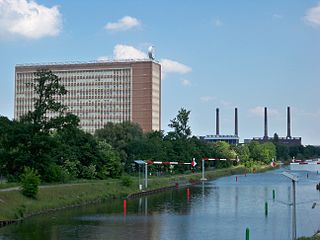
Volkswagen AG, known internationally as the Volkswagen Group, is a German multinational automotive manufacturer headquartered in Wolfsburg, Lower Saxony, Germany. Since the late 2000s, the company is publicly traded but controlled by Porsche SE, which in turn is half-owned and fully controlled by the Austrian-German Porsche and Piëch family. The company designs, manufactures and distributes passenger and commercial vehicles, motorcycles, engines and turbomachinery, as well as offering related services, including financing, leasing and fleet management. In 2016, it was the world's largest automaker by sales, overtaking Toyota and keeping this title in 2017, 2018 and 2019, selling 10.9 million vehicles. It has maintained the largest market share in Europe for over two decades. It ranked seventh in the 2020 Fortune Global 500 list of the world's largest companies.

MAN SE was a manufacturing and engineering company based in Munich, Germany. Its primary output was commercial vehicles and diesel engines through its MAN Truck & Bus and MAN Latin America divisions, and participation in the manufacturer Sinotruk.

Wolfsburg is the fifth largest city in the German state of Lower Saxony, located on the river Aller. It lies about 75 km (47 mi) east of Hanover and 230 km (143 mi) west of Berlin.

The Volkswagen Phaeton is a full-size luxury sedan/saloon manufactured by the German automobile manufacturer Volkswagen, described by Volkswagen as their "premium class" vehicle. Introduced at the 2002 Geneva Motor Show, the Phaeton was marketed worldwide. Sales in North America ended in 2006 and global sales ended in 2016.
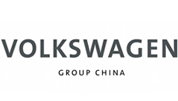
Volkswagen Group China is a division of the German automotive concern Volkswagen Group in the People's Republic of China.
The Hartz concept, also known as Hartz reforms or the Hartz plan, is a set of recommendations submitted by a committee on reforms to the German labour market in 2002. Named after the head of the committee, Peter Hartz, these recommendations went on to become part of the German government's Agenda 2010 series of reforms, known as Hartz I – Hartz IV. The committee devised thirteen "innovation modules", which recommended changes to the German labour market system. These were then gradually put into practice: The measures of Hartz I – III were undertaken between 1 January 2003, and 2004, while Hartz IV was implemented on 1 January 2005.

Sixt SE is an international mobility service provider with about 2,000 locations in more than 100 countries. Sixt SE acts as a parent and holding company of the Sixt Group, which is internationally active in the business areas of vehicle rental, car sharing, ride-hailing, and subscription.
Volkswagen Arena is a football stadium in the German city of Wolfsburg, Lower Saxony. It was opened in 2002 and named after the automotive group Volkswagen AG. The Volkswagen Arena has a capacity of 30,000: 22,000 seats and 8,000 standing places. It is located in the Allerpark and is the home stadium of the football team VfL Wolfsburg.

Carl Horst Hahn is a German businessman and former head of the Volkswagen Group from 1982 to 1993. He served as the chairman of the board of management of the parent company, Volkswagen AG. During his tenure, the group's car production increased from two million units in 1982 to 3.5 million a decade later.
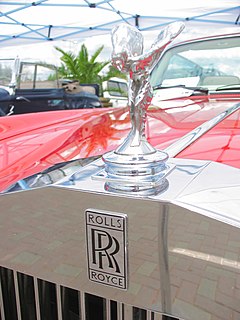
Rolls-Royce Motors was a British luxury car manufacturer, created in 1973 during the de-merger of the Rolls-Royce automotive business from the nationalised Rolls-Royce Limited. It produced luxury cars under the Rolls-Royce and Bentley brands. Vickers acquired the company in 1980 and sold it to Volkswagen in 1998. Bentley Motors is the company's direct successor; however BMW acquired the rights to the Rolls-Royce trademark for use on automobiles and launched a new Rolls-Royce company shortly afterwards.

David James McAllister is a German politician who has been a member of the European Parliament since 2014. He is a member of the Christian Democratic Union, part of the European People's Party. He is the current Vice President of the European People's Party and he is also Vice Chairman of the International Democrat Union. He was appointed Chair of the European Parliament Foreign Affairs Committee in February 2017.

Porsche Automobil Holding SE, usually shortened to Porsche SE, is a German multinational corporation primarily known as a holding company of Volkswagen Group with investments in the automotive industry. Porsche SE is headquartered in Zuffenhausen, a city district of Stuttgart, Baden-Württemberg and is majority owned by the Austrian-German Porsche-Piëch family. The company was founded in Stuttgart as Dr. Ing. h.c. F. Porsche GmbH in 1931 by Ferdinand Porsche (1875–1951) and his son-in-law Anton Piëch (1894–1952).
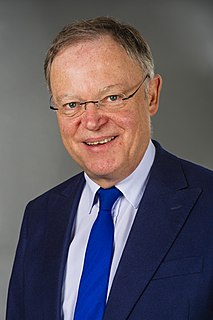
Stephan Weil is a German politician and the leader of the Social Democratic Party in Lower Saxony. On 20 January 2013, the SPD and the Green party won the 2013 Lower Saxony state election by one seat. On 19 February 2013, he was elected Minister President of Lower Saxony with the votes of SPD and Alliance '90/The Greens. From 1 November 2013 until 31 October 2014 he was President of the Bundesrat and ex officio deputy to the President of Germany. In November 2017, he was again elected Minister President with the votes of SPD and CDU.
The Volkswagen Act is a set of German federal laws enacted in 1960, regulating the privatisation of Volkswagenwerk GmbH into the Volkswagen Group. In order to maintain government control in the privately owned company, it stipulated that the votes in major shareholder meeting resolutions require 4/5th (80%) agreement. This part of the law was deemed to violate the "free movement of capital" principle of European Union corporate law. After a series of challenges from 2007 to 2013, the German parliament finally amended the part in 2013 to EU Court of Justice satisfaction.

The Volkswagen emissions scandal, sometimes known as Dieselgate or Emissionsgate, began in September 2015, when the United States Environmental Protection Agency (EPA) issued a notice of violation of the Clean Air Act to German automaker Volkswagen Group. The agency had found that Volkswagen had intentionally programmed turbocharged direct injection (TDI) diesel engines to activate their emissions controls only during laboratory emissions testing, which caused the vehicles' NOx output to meet US standards during regulatory testing. However, the vehicles emitted up to 40 times more NOx in real-world driving. Volkswagen deployed this software in about 11 million cars worldwide, including 500,000 in the United States, in model years 2009 through 2015.

Commission v Germany (2007) C-112/05 is an EU law case, relevant for UK enterprise law, concerning European company law. Following a trend in cases such as Commission v United Kingdom, and Commission v Netherlands, it struck down public oversight, through golden shares of Volkswagen by the German state of Lower Saxony. Soon afterwards, the management practices leading to the Volkswagen emissions scandal began.
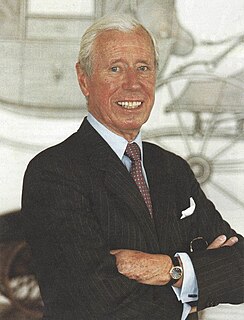
Wilhelm Karmann Jr. was a German entrepreneur. He took over the management of Wilhelm Karmann GmbH based in Osnabrück in 1952 and led the company to become a recognized partner of the automotive industry as a contract manufacturer of complete vehicles and as a supplier of pressed parts, production systems and roof modules for convertibles. He was also involved in numerous vehicle developments.
Volkswagen Group is headquartered in Germany with operations in 29 countries across its 120 plants. With 120,000 employees in Germany and 600,000 globally, it is one of the most well organized labour backed companies in the world. The role that Works Councils and IG Metall play is unique even within Germany. Workers at Volkswagen Group, including its marque Volkswagen (VW) have some of the strongest collective agreements. With the exception of the United States, all of its major locations are represented in the Global Works Council and local trade union bodies. VW Group has a strong tradition and practice of social partnership and co-determination rights globally.
















